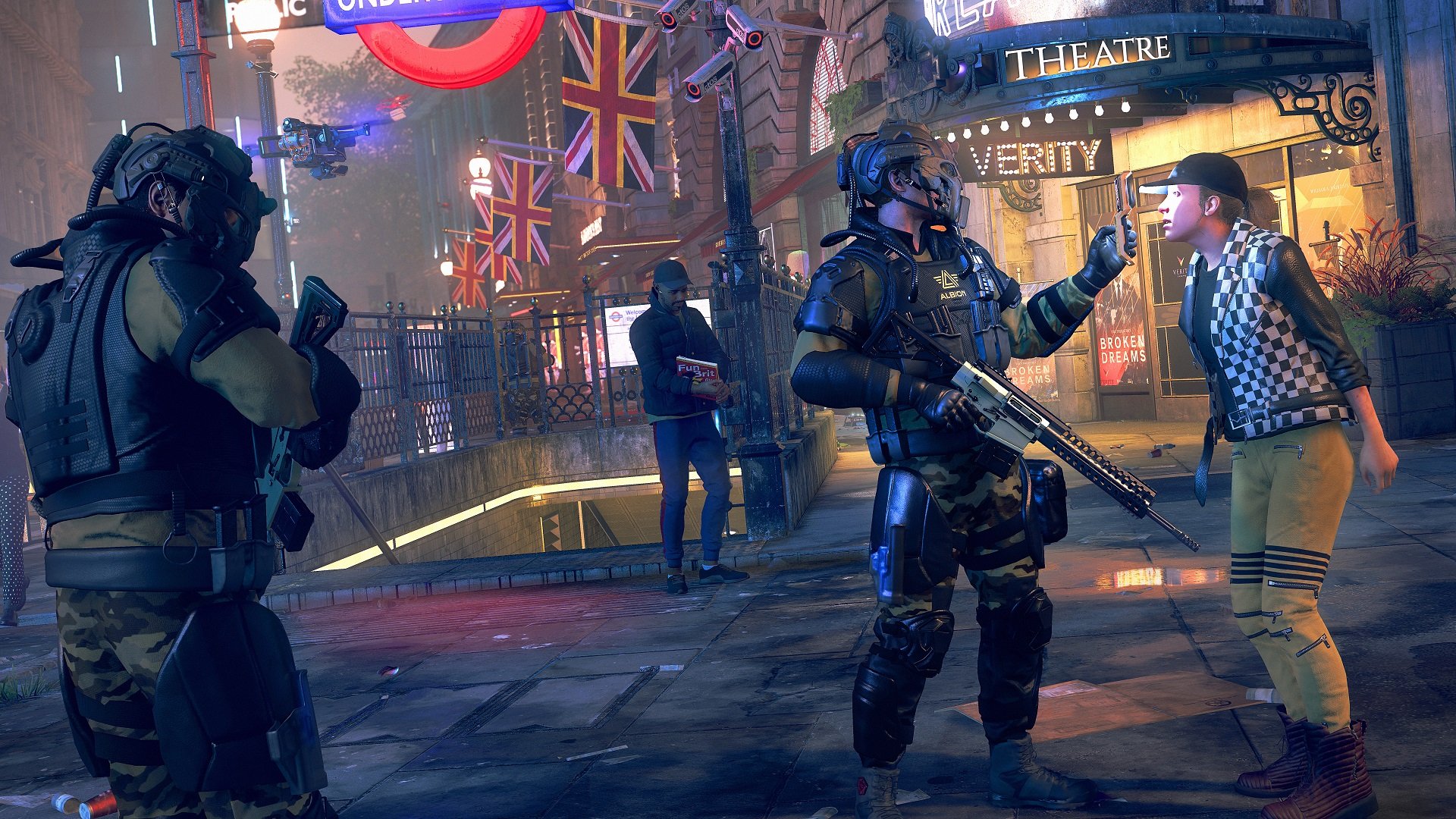Overpopulated
Ubisoft’s approach to game design for the past decade can most succinctly be summed up as “more is better.” More content, more open world, more everything. Sometimes it works out, like with Assassin’s Creed Odyssey — a game that felt justifiably big. Other times, it’s bloat for bloat’s sake.
With Watch Dogs: Legion, Ubisoft attempts its more ambitious angle yet: Turn every NPC into a protagonist. I’ve seen it first-hand. I know it works. But, I’m not convinced it’s a good idea.
Things have gone to hell in a handbasket. London is facing its downfall, society is on the brink of collapse, and an authoritarian regime rules over everyone. It’s bleak. A collective of protesters in a rundown camp are doing their best to fight fascism. They don’t seem to be making much progress.
There’s a less vocal sect doing more damage. DedSec, a group of hacktivists, are using their tech savvy to fight corruption and power. They’re destabilizing and dismantling this surveillance state in hopes of giving the common citizen a normal life again. It’s Robin Hood by way of Orwell.
In Watch Dogs: Legion, DedSec is, in theory, made up of anyone. Any NPC can be recruited off the streets to join your cause. Everyone has a procedurally-generated backstory, and it usually fixates on some sort of frustration in their life. Maybe they’re swimming in bills. Maybe someone’s blackmailing them.

Getting them on DedSec’s side is as simple as giving them a little help. Go erase their debts or the blackmail materials. It’s probably a quick infiltration mission, and you can exponentially improve their lives. More important to our cause, you can expand the DedSec roster.
After bringing someone onboard, they can be outfitted as one of Watch Dogs: Legion‘s three classes: Enforcer, Hacker, or Infiltrator. They all have their own approach. Enforcers are brutish, relying on heavy weapons and explosive rounds to get the job done. Infiltrators are stealth-focused, using cloaks and quiet melee to gain access. Hackers use machines, like a crawling spider drone, while controlling everything from a distance.
Additionally, every NPC has their own special stats that might lend an edge. For instance, someone’s profile might state that they offer +50% non-lethal damage and 40% longer arrest times. We talked to a Ubisoft representative who confirmed that there isn’t really a “god roll” NPC, so to speak; all characters are pretty balanced, and none of them are blatantly overpowered.

Watch Dogs: Legion‘s developers might be most proud of the permadeath system. After taking enough damage, a prompt pops up asking if you’d like to surrender or keep fighting. Surrender and that character goes to the police station, locked away for a while and inaccessible. Keep fighting and you’re given a second chance to flee. Fail again and that character is dead for good.
But, in a world where anyone can be your minion, what does one pawn matter? It doesn’t seem as if there will be much emotional effect to losing one DedSec member. They level up individually, so you’d probably rather not lose a well-skilled character. In the end, it doesn’t really matter. Swap to someone else, carry on like nothing happened. If Watch Dogs: Legion boasts that it has functionally-infinite protagonists, why should we feel an attachment to any one person? They’re interchangeable. They’re cogs.
Besides, to get the full effect of Watch Dogs: Legion, it seems as if you only need three protagonists — one to play the role of each class. Then you could write some real stories for these people. As is, it’s a bunch of blank slates. In wanting everything, we’re sacrificing any semblance of character development. There are five different storylines based on thematic pillars (police state, impact of technology, etc.) and they’ll have to do the heavy lifting as far as the narrative is concerned.
The near-hour I played Watch Dogs: Legion convinced me that it’ll be another stylish tech-forward game with plenty of opportunity to approach a problem from multiple angles. However, it also convinced me that it doesn’t need infinite protagonists. One or two or even three would’ve worked just fine. Given London’s entire population at your disposal, chances are you won’t find yourself caring about anyone.








